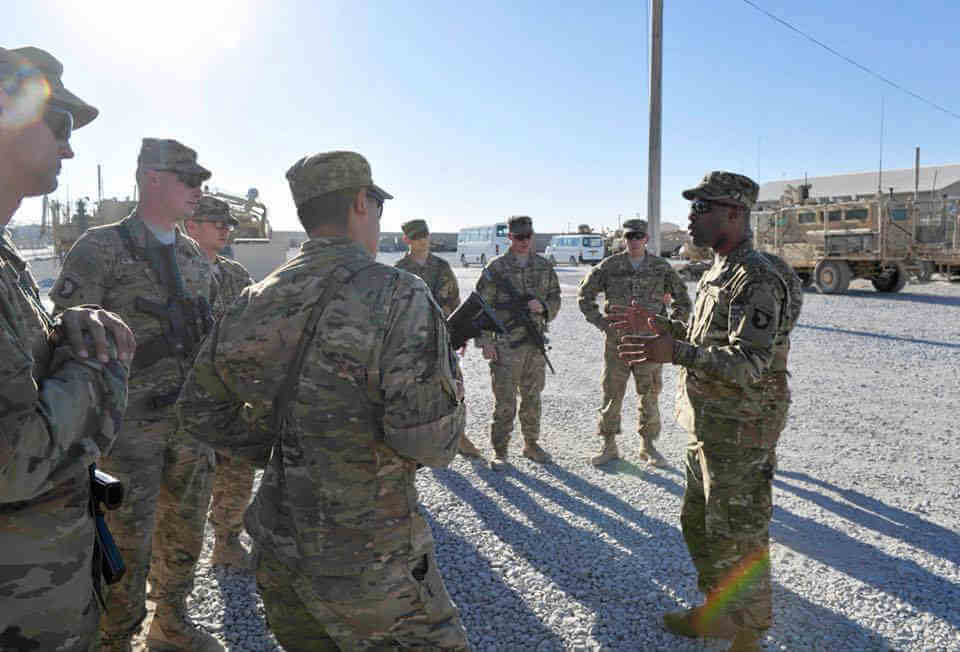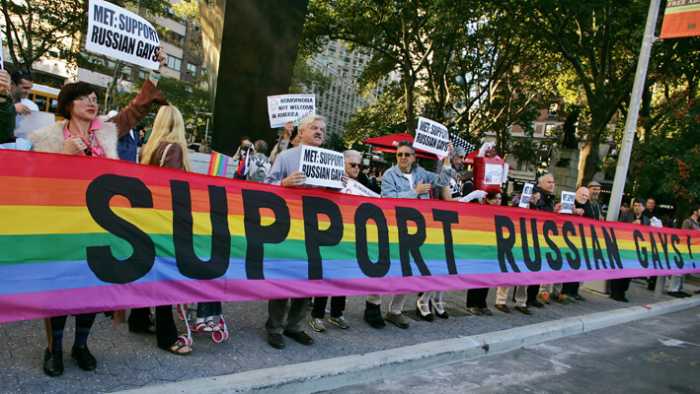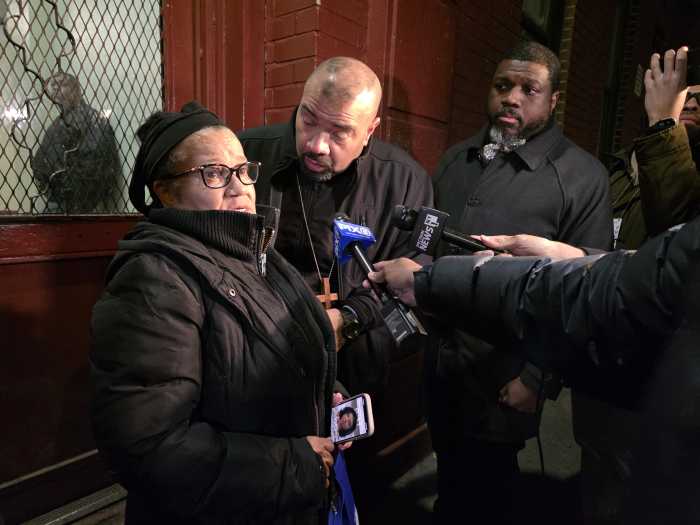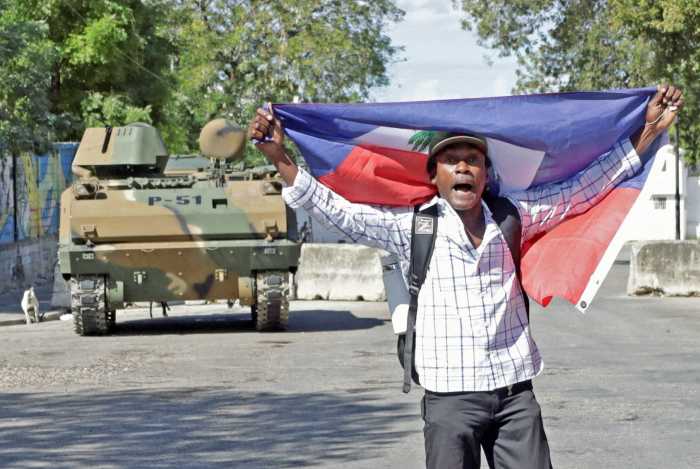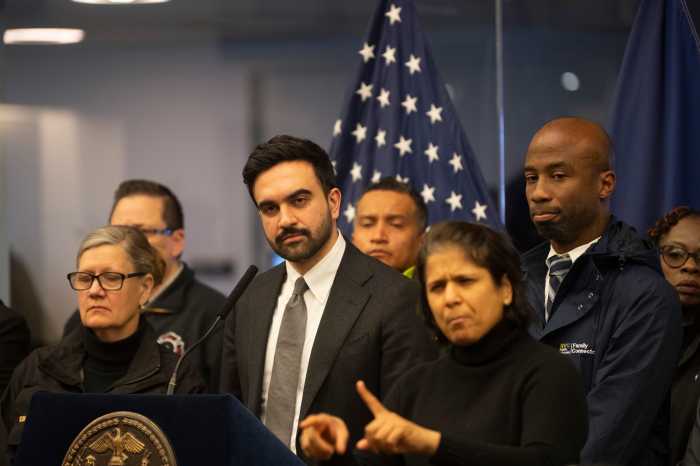New Yorkers celebrated a new law aimed at restoring state benefits for veterans unfairly discharged from the military due to sexual orientation, gender identity, sexual trauma, traumatic brain injury, or post-traumatic stress disorder (PTSD), but some LGBTQ veterans are holding their applause because they say it is far too limited.
And yet, one elected official who championed the bill appears to be blowing off that concern and another is offering only ambiguous support when asked whether the Legislature will actually fix the lingering issues.
The Restoration of Honor Act, which was signed into law last month by Governor Andrew Cuomo, was viewed as an important step forward in righting the wrongs of the US military’s treatment of LGBTQ service members who were denied honorable discharges due to their sexual orientation or gender identity. Only the federal government can make decisions about military discharges, but the measure at least allows veterans in New York the opportunity to apply for state benefits afforded to other former service members.
But the rosy picture painted by the lawmakers who carried the bill — Assemblymember Didi Barrett of Dutchess and Columbia Counties and out gay West Side Senator Brad Hoylman — does not tell the whole story, according to out gay military veterans like James Fitzgerald, who is among those demanding two amendments to the legislation. Other queer military veterans who spoke off the record to Gay City News echoed similar concerns.
The first amendment would remove a requirement in the bill for veterans with PTSD to obtain a mental health diagnosis from Veterans Affairs (VA) in order to utilize state benefits. Some veterans who originally did not receive an honorable discharge have either not sought to upgrade their status or been denied the right to because other circumstances were also at play. These veterans face a lose-lose situation because without honorable discharges they are denied VA healthcare services, leaving them out to dry when they seek state benefits. Congressional efforts to expand access to VA healthcare for some classes of service members who have other than an honorable discharge have been ignored by the VA, according to a story in the Washington Post about a veteran who suffered from PTSD during his time in the military but has been unable to obtain VA assistance.
“You have a situation that can re-traumatize veterans if they have been told they can receive services, but they go to the VA and are turned away,” said Fitzgerald, who was forced to hide his sexuality during a nine-year stint in the Army during the era of Don’t Ask, Don’t Tell. “It shouldn’t be difficult chore for vets to access services.”
The second amendment, according to advocates, would address the bill’s exclusion of LGBTQ veterans who were victims of entrapment by bigoted officials and charged with “soliciting sexual activity” or who were punished for pushing back against assaults. That amendment would also correct a hole in the bill that currently leaves out those who were forced to leave their posts due to homophobic hostility, but were deemed to have been “absent without leave.”
““The precipitating factor is they were discriminated against for their sexuality, but when it comes to the discharge paperwork, all it will show is absence without leave,” Fitzgerald said.
Those issues surfaced before the bill was signed into law during an October 17 State Assembly hearing on the delivery of services for veterans. Out lesbian military veteran who was then president of New York City Veterans’ Alliance Kristen Rouse used her testimony that day to confront legislators, saying that the bill would end up “excluding the very veterans it is intending to help because of the VA having to do a mental health assessment for veterans who are not eligible.”
Barrett appeared to be surprised that Rouse would question the contents of the bill and responded to Rouse by saying that it’s “my bill” and that she was “very confident” in the way it was written.
“I think we have a difference of opinion about that bill,” Barrett said. “I don’t think it leaves out the people that you think, but I don’t have enough information right now.”
Barrett ignored Gay City News’ multiple requests for comment about the desired amendments, not answering questions about whether lawmakers would move to fix the bill.
When Gay City News asked Hoylman about the lingering issues with the bill, he left the door open to the possibility of improving the bill but would only say, in a written statement, that it is his “hope” to “continue discussions with the Governor’s office and my Assembly colleagues to make this legislation even more comprehensive by expanding the pool of eligible veterans.”
Fitzgerald said queer veterans need the support of both Hoylman and Barrett, but, in acknowledging Barrett’s hesitation, said, “I would say the individual we would need is Didi Barrett.”
“We need her to understand the complexities of some situations these veterans have experienced,” he said.
Fitzgerald, who currently suffers from a disability stemming from his time in the military, said he is lucky to have made it through his time in the military without suffering from the discharge issues that so many out LGBTQ veterans have faced. But he understands their pain and wants to see his fellow veterans get the assistance they need — and soon.
“Being able to have this act implemented properly would give us the ability touch base with these veterans and connect then with the services they need,” he said.

